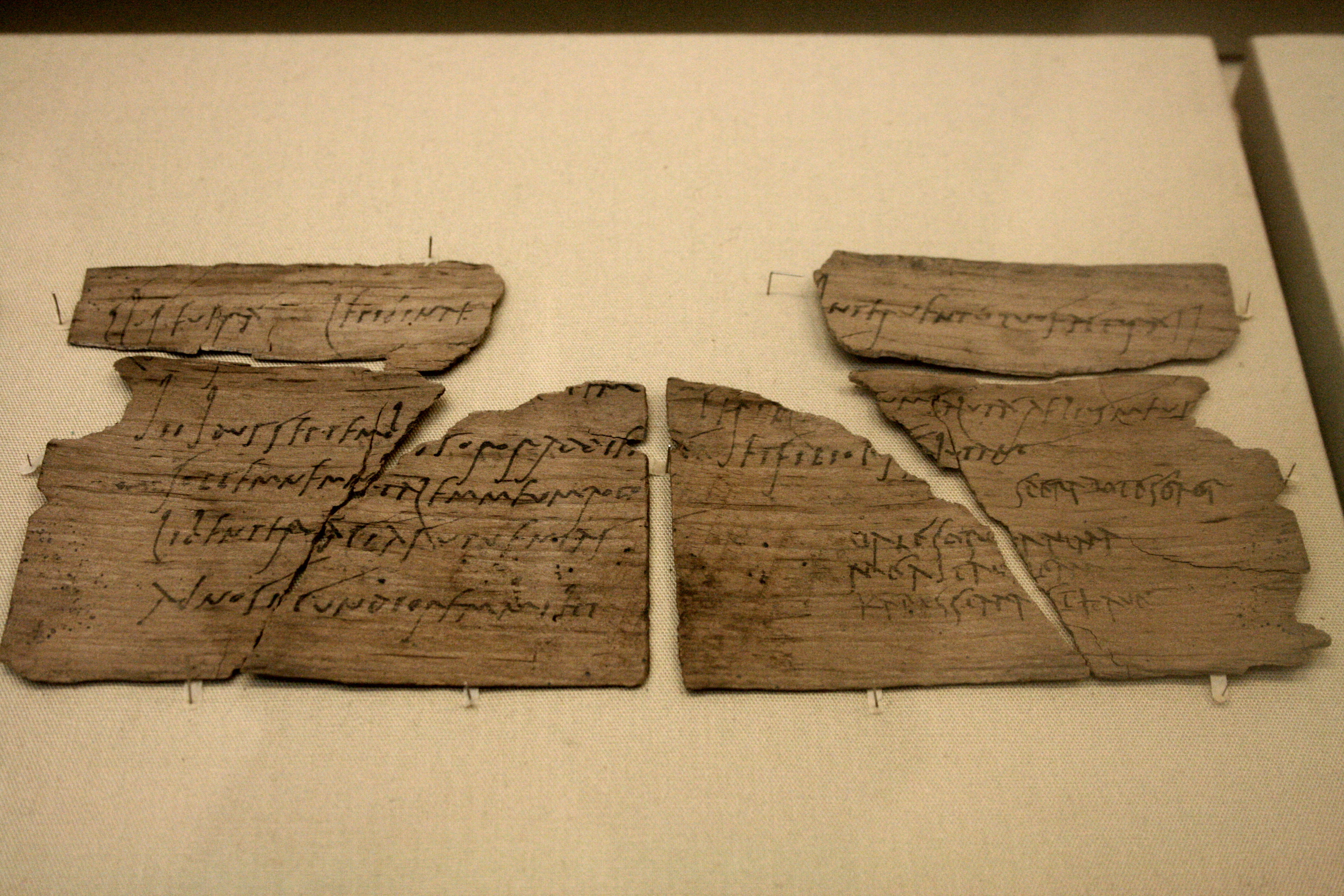Happy Birthday in Latin (and all about Roman Birthday Traditions!)
Learn how to wish your loved ones happy birthday in Latin and discover how the ancient Romans celebrated their birthdays!
Are you trying to write a birthday card in Latin to impress your Latin teacher? Or are you just curious about how the ancient Romans celebrated their special days? Either way, this post can help you out.
I include several excellent ways to say “happy birthday” in Latin, plus some suggestions for customizing your birthday wishes.

This post may contain affiliate links and I may receive a commission, at no extra cost to you, if you make a purchase through a link. See my disclosures for more details.
How do you say Happy Birthday in Latin?
While the ancient Romans definitely celebrated birthdays, they didn’t have one set phrase like “happy birthday.” As a result, you can express birthday wishes in Latin in a few different ways.
In this post, I will highlight three common variations. I have heard Latin speakers today use all of these, so they are all excellent ways of saying “happy birthday” in Latin!
VERSION 1: Fēlīcem nātālem!
Fēlīcem nātālem literally means “happy birthday”. This is a shortened form of Version 2.
VERSION 2: Fēlīcem diem nātālem tibi exoptō!
Fēlīcem diem nātālem tibi exoptō is a full sentence meaning “I wish you a happy birthday!” You can shorten it to fēlīcem diem nātālem or fēlīcem nātālem.
VERSION 3: Fēlīx nātālis!
Fēlīx nātālis is another quick way to say “happy birthday.” This is an abbreviated form of fēlīx diēs nātālis tibi sit, which means “may you have a happy birthday.”
Note that I have used macrons (the little lines over the letters) to indicate which vowels are long. You do not need to use macrons if you are writing a birthday card or something similar, since macrons are a pronunciation aid.
Speaking of pronunciation, check out my YouTube video about saying happy birthday in Latin! I also have a blog post all about classical Latin pronunciation.
Now what if you want to customize a birthday card in Latin? If you want to add how old the person is turning, then Roman numerals are very helpful.
“Happy tenth birthday!”, for example, is fēlīcem decimum nātālem! “Decimum” is an ordinal number meaning tenth.
Another way to write this is felicem X natalem. X is the Roman numeral for 10 and thus can also mean “tenth.” This way it doesn’t matter if you don’t know how to say the age in Latin – just put the Roman numeral.
Here are some quick examples to show you what I mean:
- Felicem sextum decimum natalem or felicem XVI natalem = “happy 16th birthday”
- Felicem quintum et vicesimum natalem or felicem XXV natalem = “happy 25th birthday”
- Felicem quartum et sexagesimum natalem or felicem LXIV natalem = “happy 64th birthday”

Happy Birthday Wishes from Ancient Rome
The Romans loved celebrating their birthdays and the birthdays of their family, friends, and patrons. Here are two examples of birthday wishes that come all the way from ancient Rome.
In the early 2nd century C.E., the Roman author Pliny the Younger wrote to the emperor Trajan to wish him happy birthday.
I wish, master, that you may spend both this birthday and very many others as happily as possible!
Optō, domine, et hunc nātālem et plūrimōs aliōs quam fēlīcissimōs agās!
Pliny the Younger, Epistles 10.88
Around 148-149 C.E., a young man named Marcus Aurelius sent a birthday message to his teacher, M. Cornelius Fronto. About ten years later, Marcus Aurelius became emperor of Rome.
May you pass your birthday in good health now, my teacher, and from now on strong, happy, and possessing all that you wish for!
Et nunc sānus et deinceps validus laetus compos omnium votōrum agās diem nātālem, mī magister!
Marcus Aurelius to his teacher, M. Cornelius Fronto, Caes. 5.47
Ancient Roman Birthday Traditions
Birthdays were important to the ancient Romans just like they are to many people today. On their birthdays, people would dress in white and try to only say positive, auspicious things. They would make sacrifices of incense, wine, and honey-cakes (lība) on their household altars.
These sacrifices were directed at the personal divinity or “guardian spirit” of the birthday celebrant. For men, this was their genius, while for women, it was their iuno or Juno. People would make vows (vōta) saying that if they lived to their next birthday, the genius or iuno would receive more offerings.
Birthdays were also communal events. The Romans held birthday parties and gave birthday presents. There was even a special type of poem – a genethliacon or “birthday poem” – that could be written to honor the birthday boy or girl.
People would celebrate their loved ones’ birthdays even in their absence or after their death. They also celebrated the birthdays of their patrons and of members of the imperial family.
Celebrating a birthday could be a political statement and even be dangerous. For instance, a man named Salvius Cocceianus commemorated the birthday of his uncle, the deceased emperor Otho. The current emperor Domitian was not pleased and had Cocceianus executed (Suetonius, Life of Domitian 10).
While some of the Romans’ birthday customs may seem odd to us, some are quite familiar. One ancient party invitation has survived to the present day. It shows that we at least have birthday parties in common with the ancient Romans!

British Museum, CC BY-SA 3.0 via Wikimedia Commons
This wooden writing tablet dates to ca. 97-103 C.E. and contains a party invitation from Claudia Severa to Sulpicia Lepidina. Both women lived in Vindolanda, a Roman military outpost in northern Britain.
Claudia Severa sends greetings to her Lepidina. For the day of the celebration of my birthday, sister, on September 11, I give you a warm invitation to make sure that you come to us, to make the day more enjoyable for me by your arrival. . . .
Vindolanda Tablet No. 291
You can read the full letter online in English and Latin. The wooden tablet itself is on display in the British Museum.
Birthday Gifts for Lovers of Latin
Does your friend or loved one like Latin or ancient Rome in general? Then here are a few ideas for presents they might enjoy.
(I’m a Latin professor, and I would appreciate all of these gifts! Hint hint, if any of my family is reading this!)
Merels: A Strategy Game from Ancient Rome
You’ve heard of chess and checkers, but have you heard of merels or Nine Men’s Morris? This strategy game dates all the way back to ancient Rome (and beyond).
The poet Ovid talks about the game in one of his poems (Ars Amatoria 3.365-366), and archaeologists have found many merels boards carved into buildings in Rome. Who doesn’t want to play a game that’s over 2000 years old?
Colosseum Building Block Set
The Colosseum has been a major attraction in Rome ever since its completion in 80 C.E. This massive amphitheater was once used for gladiator combats and other kinds of public spectacles, and it is a must-visit for any history or Classics nerd.
That’s why a Latin enthusiast would appreciate this Colosseum building block set! The Harvard Classics department recently purchased a similar set (although much larger) and students and faculty have been having fun putting the pieces together over the last year or so.
Latin Picture Dictionary
There had to be at least one book on this list because Latin enthusiasts are often bookworms. Take a look at this beautifully illustrated Latin picture dictionary, perfect for users of all ages.
Picture dictionaries are so much fun and they are a great way to learn thematic vocabulary. You can even learn to talk about modern items and concepts in Latin!
Roman Forum Puzzle
The Roman Forum is one of the coolest archaeological sites in Rome – it’s where so much of Roman history occurred. The Roman Senate met there, sacred temples stood (and still stand) there, and victorious generals processed through on their way up the Capitoline Hill.
This means that the Roman Forum has a special spot in the hearts of many classicists! This beautiful puzzle will provide hours of SPQR-themed relaxation for lovers of Latin and ancient Rome.
Final Thoughts & Further Reading
Now you know how to say “Happy Birthday” in Latin, and you know that the Romans made a big deal about birthdays just like we do today. Maybe you even found a present for a Latin-loving friend (or for yourself)!
If you want to learn more about Roman birthdays, I recommend Kathryn Argetsinger’s excellent article “Birthday Rituals: Friends and Patrons in Roman Poetry and Cult.” It was published in Classical Antiquity in 1992 and it contains so much useful information!
YOU MAY ALSO LOVE:
51 Latin Phrases Popular in English





Thank you! I feel confident I can wish my partner happy birthday without breaking his immersive trip.
You are very welcome! I’m glad to be of help 🙂